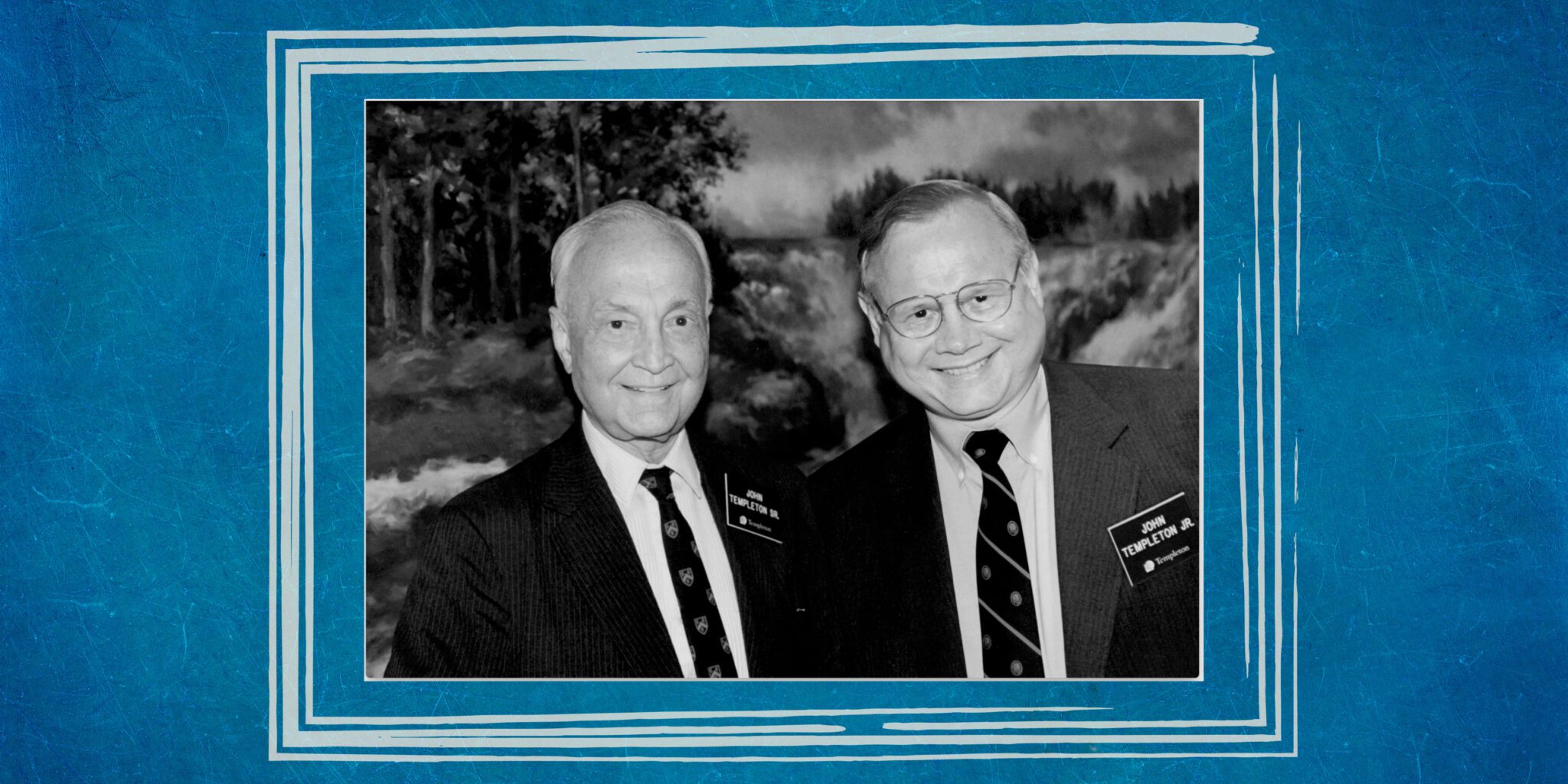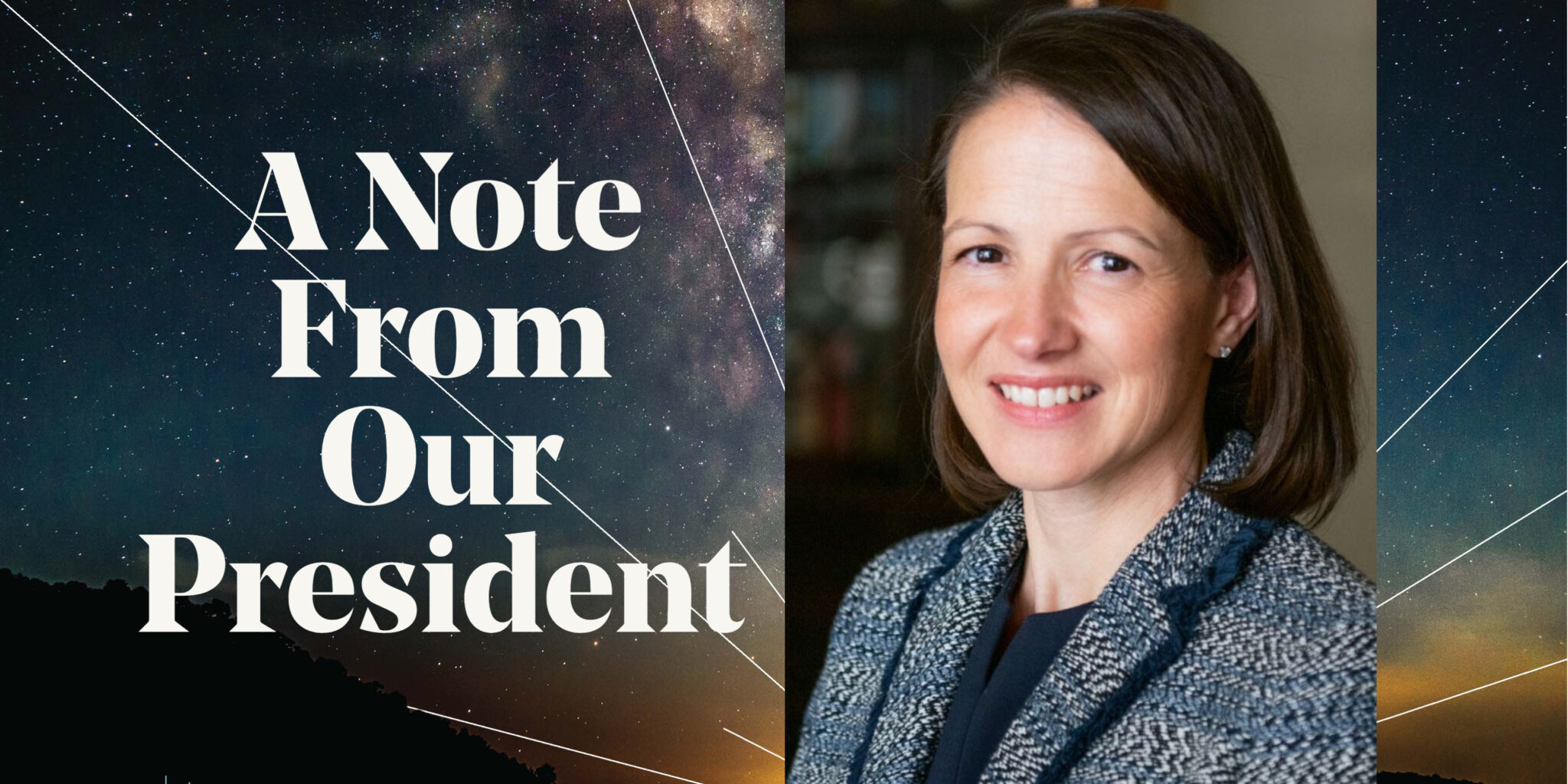Sir John Templeton spent decades developing a vision for how scientific insights and religious beliefs could work together to contribute to humankind’s spiritual flourishing. Beginning with the Templeton Prize for Progress in Religion, which was established in 1972, Sir John Templeton had been trying to understand why religion did not receive the attention it deserved. He created the Templeton Prize to highlight “the wonderful new things going on in religion.” He published The Humble Approach: Scientists Discover God in 1981 to encourage both scientists and faith leaders to acknowledge what we do and do not know about the spiritual dimension of human existence. And he ultimately created the John Templeton Foundation to support serious research about humankind’s place and purpose in the universe.
Over the years, we have carried out this philanthropic vision by creating grant programs that have opened new areas of research and by supporting multi-disciplinary work on ideas that were being reevaluated in light of new scientific evidence. The Campaign for Forgiveness Research launched in 1997 (for which the John Templeton Foundation received a National Humanities Medal in 2008) is an example. Before 1997, forgiveness was a concept for religious leaders, theologians, and philosophers. The Campaign for Forgiveness Research, however, demonstrated that you could study forgiveness through many different domains. From psychology to medicine and neuroscience, and even primatology, a multi-disciplinary approach to research on forgiveness yielded more insights than anyone thought possible.
As the Foundation expanded its research programs to study gratitude, generosity, purpose, intellectual humility, theological anthropology, the philosophy of cosmology and more, we built a departmental structure around specific academic disciplines – Human Sciences, Life Sciences, Philosophy and Theology, and Mathematical and Physical Sciences. And yet we focused our efforts on supporting interdisciplinary work that engaged scholars trained in different disciplines.
The 2021 Templeton Prize winner, Dr. Jane Goodall, describes this approach as windowpanes through which we look to understand the world around us. Science offers one window “polished by a succession of brilliant minds.” And there are other windows which offer insight from our hearts and our souls and through which the founders of the world’s religions and other spiritual leaders have found meaning and purpose. We need all these windows to see a fuller picture. (Reason for Hope: A Spiritual Journey)
I created Religion, Science and Society to capture that fuller picture.
Religion, Science and Society is about knitting together insights from religious and philosophical traditions with the findings from the sciences to contribute to societal well-being. Religion, Science and Society will contribute to a better understanding of perennial questions about purpose and meaning. “Who am I? Why am I here on planet Earth? What does the future hold? How can I get along better with the people in my life?” These questions are fundamentally spiritual in nature. They are normative questions about the good life and how we should live. They suggest a search for truth on the path to purpose and meaning. They recognize that our experiences in life, the people we know and love, the communities in which we live and the institutions that surround us are all part of what it means to be human.
For many years we organized the Foundation’s grant making activity around a departmental structure that mirrored the academy. Now, we aim to explore the totality of human experience. Humans navigate many of the same spiritual and scientific questions while embedded in different social and cultural contexts. And I believe the most innovative ideas about what it means to live a life full of meaning and purpose will emerge at the intersections between disciplines, between different cultural environments and between different religious and spiritual traditions.
To take Jane Goodall’s analogy one step further, if the sciences and humanities represent different windows in the house of knowledge, academic disciplines are the rooms in the house that have long been separated by walls and doors and hallways. Religion, Science and Society aims to create new openings by drawing connections between multiple disciplines without lowering the standards of excellence and with the goal of identifying new grant making strategies that are designed to have a meaningful impact on individuals, institutions, and communities. While the specific themes are still in development, our approach is set. We are committed to understanding what it means to live well in the world today and we are calling scholars of all kinds to join us in that pursuit.


